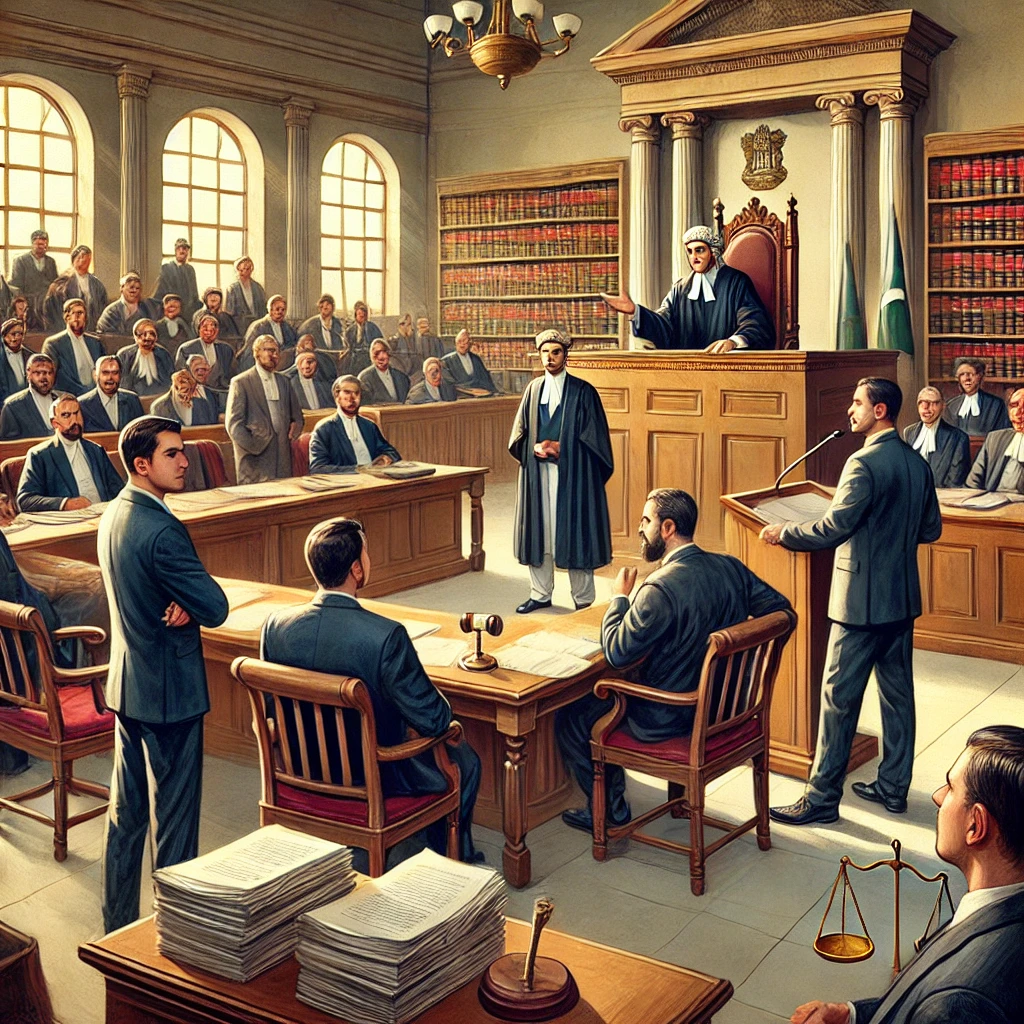The subject of granting exemption from personal appearance to an accused during trial is a nuanced aspect of criminal procedural law, particularly under Section 540-A of the Criminal Procedure Code (Cr.P.C.), 1898. This provision, aimed at balancing the requirements of justice with the realities of practical constraints, is a testament to the adaptability and discretion built into the legal framework of Pakistan.The issue at hand requires a careful weighing of procedural integrity and human exigencies, while never losing sight of the overarching goal of justice.
The Text of Section 540-A, Cr.P.C.
The language of Section 540-A is clear: it allows a judge or magistrate to dispense with the personal appearance of an accused during trial if certain conditions are met. These include the satisfaction of the court, for reasons to be recorded, that the accused is incapable of remaining before the court, provided the accused is represented by counsel. This provision is discretionary, leaving significant latitude to the judicial officer, but such discretion must be exercised judiciously.
Conditions for Granting Exemption
Case law provides invaluable guidance on the conditions under which an accused may be exempted from personal appearance. The courts have consistently emphasised the following principles:
- Physical Presence at Initial Stage: The accused must appear in person at least once before the trial court to establish their bona fides and comply with procedural requirements. As the Lahore High Court noted in 2010 PLD 270, the words “before the court” imply physical presence at some stage of the proceedings.
- Representation by Counsel: It is mandatory that the accused seeking exemption is represented by a competent pleader who undertakes to appear on their behalf at all subsequent hearings. This ensures the trial’s continuity and safeguards the rights of all parties.
- Peculiar Circumstances: The exemption may be granted on grounds such as medical incapacity, employment abroad, or other compelling reasons. For instance, in 2015 PCrLJ 1413, the Karachi High Court granted exemption to an accused suffering from a prolapsed intervertebral disc, recognising the severity of the medical condition.
- Good Conduct of the Accused: Courts often consider the past conduct of the accused in the trial. In 2018 YLRN 99, the Peshawar High Court allowed an appeal where the accused had consistently complied with court orders and appeared whenever required.
- Exceptional Situations: In cases involving security risks or socio-political factors, courts have shown flexibility. For instance, in 2011 CLD 1067, the Environmental Tribunal Lahore exempted a foreign CEO from personal appearance due to security concerns.
Judicial Discretion and the Boundaries of Leniency
The grant of exemption is not a matter of right but a privilege extended by the court based on its discretion. This discretion must be exercised with due regard to the facts and circumstances of each case, as underscored in 2010 MLD 1395. The trial court is tasked with ensuring that such exemption does not impede the trial’s progress or prejudice the prosecution’s case.
However, courts have also demonstrated their unwillingness to condone misuse of this provision. In 2014 PCrLJ 1434, the Quetta High Court refused to exempt the accused from appearance, stressing that exemption applications should not serve as tools for delaying tactics or evasion of justice.
Balancing Justice and Practical Realities
This area of law, while procedural in nature, also touches on deeper ethical considerations. The right of the accused to a fair trial must be balanced against the need for accountability and the rights of the complainant.
Strategic Advice
- Present Clear Evidence: Whether it is a medical certificate or evidence of employment obligations, supporting documents must be cogent and credible.
- Maintain the Court’s Confidence: Demonstrate the accused’s willingness to comply with court orders, thereby reinforcing their bona fides.
- Argue Proportionality: Highlight how the exemption will not hinder the trial and may, in fact, expedite proceedings by avoiding unnecessary delays.
The law, as always, must be a servant of justice, not a tool for expediency or manipulation. As legal practitioners, it is our duty to uphold this balance, reflecting the ethical principles that underlie our commitment to the rule of law.

